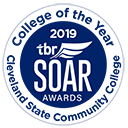Dentists
Dentists, General
29-1021.00
Median wages
$150,070
Examine, diagnose, and treat diseases, injuries, and malformations of teeth and gums. May treat diseases of nerve, pulp, and other dental tissues affecting oral hygiene and retention of teeth. May fit dental appliances or provide preventive care.
- Use masks, gloves, and safety glasses to protect patients and self from infectious diseases.

- Examine teeth, gums, and related tissues, using dental instruments, x-rays, or other diagnostic equipment, to evaluate dental health, diagnose diseases or abnormalities, and plan appropriate treatments.

- Administer anesthetics to limit the amount of pain experienced by patients during procedures.

- Use dental air turbines, hand instruments, dental appliances, or surgical implements.

- Formulate plan of treatment for patient's teeth and mouth tissue.

- Diagnose and treat diseases, injuries, or malformations of teeth, gums, or related oral structures and provide preventive or corrective services.

- Write prescriptions for antibiotics or other medications.

- Advise or instruct patients regarding preventive dental care, the causes and treatment of dental problems, or oral health care services.

- Design, make, or fit prosthodontic appliances, such as space maintainers, bridges, or dentures, or write fabrication instructions or prescriptions for denturists or dental technicians.

- Fill pulp chamber and canal with endodontic materials.

- Treat exposure of pulp by pulp capping, removal of pulp from pulp chamber, or root canal, using dental instruments.

- Remove diseased tissue, using surgical instruments.

- Manage business aspects such as employing or supervising staff or handling paperwork or insurance claims.

- Analyze or evaluate dental needs to determine changes or trends in patterns of dental disease.

- Apply fluoride or sealants to teeth.

- Eliminate irritating margins of fillings and correct occlusions, using dental instruments.

- Perform oral or periodontal surgery on the jaw or mouth.

- Plan, organize, or maintain dental health programs.

- Bleach, clean, or polish teeth to restore natural color.

- Produce or evaluate dental health educational materials.
- Critical Thinking — Using logic and reasoning to identify the strengths and weaknesses of alternative solutions, conclusions or approaches to problems.

- Judgment and Decision Making — Considering the relative costs and benefits of potential actions to choose the most appropriate one.

- Active Listening — Giving full attention to what other people are saying, taking time to understand the points being made, asking questions as appropriate, and not interrupting at inappropriate times.

- Complex Problem Solving — Identifying complex problems and reviewing related information to develop and evaluate options and implement solutions.

- Monitoring — Monitoring/Assessing performance of yourself, other individuals, or organizations to make improvements or take corrective action.

- Reading Comprehension — Understanding written sentences and paragraphs in work related documents.

- Speaking — Talking to others to convey information effectively.

- Active Learning — Understanding the implications of new information for both current and future problem-solving and decision-making.

- Service Orientation — Actively looking for ways to help people.

- Social Perceptiveness — Being aware of others' reactions and understanding why they react as they do.

- Time Management — Managing one's own time and the time of others.

- Coordination — Adjusting actions in relation to others' actions.

- Persuasion — Persuading others to change their minds or behavior.

- Science — Using scientific rules and methods to solve problems.

- Management of Personnel Resources — Motivating, developing, and directing people as they work, identifying the best people for the job.

- Instructing — Teaching others how to do something.

- Writing — Communicating effectively in writing as appropriate for the needs of the audience.

- Learning Strategies — Selecting and using training/instructional methods and procedures appropriate for the situation when learning or teaching new things.

- Negotiation — Bringing others together and trying to reconcile differences.

- Management of Financial Resources — Determining how money will be spent to get the work done, and accounting for these expenditures.

- Management of Material Resources — Obtaining and seeing to the appropriate use of equipment, facilities, and materials needed to do certain work.











